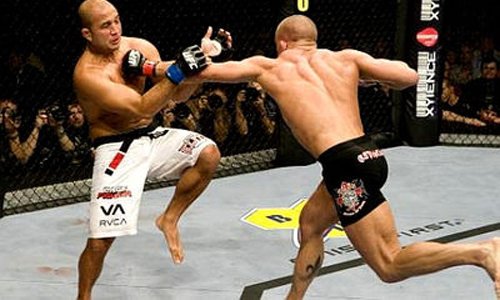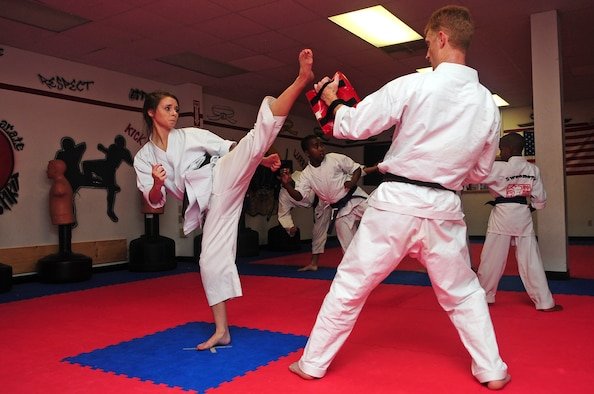In 2015, there were a total of 1,197,704 violent crimes that were committed in a nation of 321,418,820 people. In that same year, there were a reported 15,696 murders and non-negligent manslaughters, 124,047 reported rapes, and 764,449 aggravated assaults nationwide. That adds up to 904,192 people who were murdered, raped, and beaten within a span of a year within the United States. Shy of a million people in those 3 categories were either inadequately or totally incapable of defending themselves from their attackers and were victimized as a result.
Although the popularization of Martial Arts has grown in the past few decades, it’s commonly regarded as a form of sport and discouraged from utilization in day-to-day life. Whenever they are forced to use their skills in an actual altercation, they resort to the techniques they were taught to use in competitions and in sparring practice. This is why you see more brutal assaults occur during street fights, because rather than knocking someone down out through a series of well-placed blows, they “ground and pound” like they were in a UFC fight.

Any martial artist worth their salt will tell you that there is a distinct difference between the way you perform your techniques in a competition and the way you perform in an actual street fight. You don’t go for a “Superman punch” or a guillotine choke-hold when you are actually trying to defend yourself, you use quick, powerful strikes to your opponent’s weak point until they submit or you can find a way to leave the fight. Especially when fighting multiple opponents, like you might be going up against AntiFa members in a protest, you want to execute techniques that will inflict just the right amount of damage in the right places while maintaining enough focus to block/redirect any other attacks coming your way.
However, while there are approximately 16,613 martial arts schools in the United States, you have about 91% of consumers going to multiple clubs/schools/dojos to practice martial arts while only 9% stay at one place. This may be in part due to the tenure of schools open, with 13.9% of independent schools staying open for less than one year, 30.4% staying open for 1-3 years, and a total of 54.8% of schools being open from 4-6 years, 7-10 years, and longer than 10 years combined. What also might factor in is the pricing of lessons, which cost $75-149/mo. at private schools and $45-$99/mo. at gyms and community centers.

There is also the more subjective factor to consider in why so few people take and maintain interest in martial arts. According to a study done by fightingarts.com, 31% of the reason is because of “Time Constraints from Work and Personal Life”, 23% is because they moved away from the school, 18% “Just Lost Interest”, 13% is due to injuries or medical issues, and a combined 15% said the classes ran their terms or that it was due to finances and the cost of classes. For a lot of teachers, 72% of the reasons why students quit is because of things outside of their control and because students don’t regard martial arts for what it is: a lifestyle and not just some cool hobby to take.
Then again, who can really blame consumers for thinking like that? An extra $100 per month could help pay the bills or pay off some debt. They can take a variety of short self-defense courses at a gym or community center, of which the prices are included into the membership fee, and most people join to either show off or try to get into shape. Although it may be pricey, people don’t acknowledge that self-defense is a vital life skill that everyone should have. Even if it’s learning Boxing or Tai Chi, the learning and consistent practice of martial arts instills not only physical discipline to students, but it also teaches how to approach situations in life and to have a better understanding of their own capabilities.
Obviously, you can’t stop a bullet with a roundhouse kick and Jeet Kun Do doesn’t teach you how to become a psychic that can see who will attack you and when. Learning Martial Arts doesn’t mean that you are guaranteed to never get hurt or killed when you are attacked. The same logic can be applied to owning a gun and training yourself on how to use it. However, what it does mean is that if you are pressed into a situation where you are forced to defend yourself, you have a better chance of doing so successfully compared to not training at all.
When you have a mastery of your art, you will be able to assess situations better, become less hesitant, show restraint when needed, and execute your techniques with absolute precision. These are priceless skills that can be applied in every aspect of your life and, through recognizing those changes, it can boost the confidence and self-worth of the individual significantly. Even if you find yourself never having to use your art in an actual fight, the benefits it provides to your physical and mental well-being make it more than worth it.
Sources:
https://ucr.fbi.gov/crime-in-the-u.s/2015/crime-in-the-u.s.-2015/tables/table-1 https://www.statista.com/statistics/191917/participants-in-martial-arts-in-the-us-since-2006/ http://martialinfo.com/martial-art-statistics/ http://mata-related.s3.amazonaws.com/afs-mata-market-research.pdf http://fitness.costhelper.com/martial-arts-classes.html http://www.ulmahq.com/why-do-good-students-quit/ http://www.fightingarts.com/reading/article.php?id=36 http://www.contemporarypsychotherapy.org/vol-2-no-1/martial-arts-and-mental-health/

Quote from my sensei:
"You know what is the biggest ripoff? Cocaine! You are only high for like 15 minutes" -from my first day of studying at the school.
Another quote:
Sensei: "Dave, what would you do if some bad guy came through the door and said he would kill us all?"
Student: "I'd hit him with that water bottle. Then, I'd hit him with that chair until he stopped being an asshole."
Sensei: Without pause. "If he didnt stop being an asshole?"
Student: "I'd push that fridge over and drop it on him so he could get up."
Sensei: "And what will you tell the cops?"
Student: "I'd say he fell. And then the fridge fell on top of him. It was a horrible accident, officer.
Sensei: "Yep. Go with that."I hear ya, @volanarchist. There are some styles that teach only personal development and some that teach only bare-bones fundamentals of self defense. Everything in between is a sport. Sports have rules. Self defense has no rules.